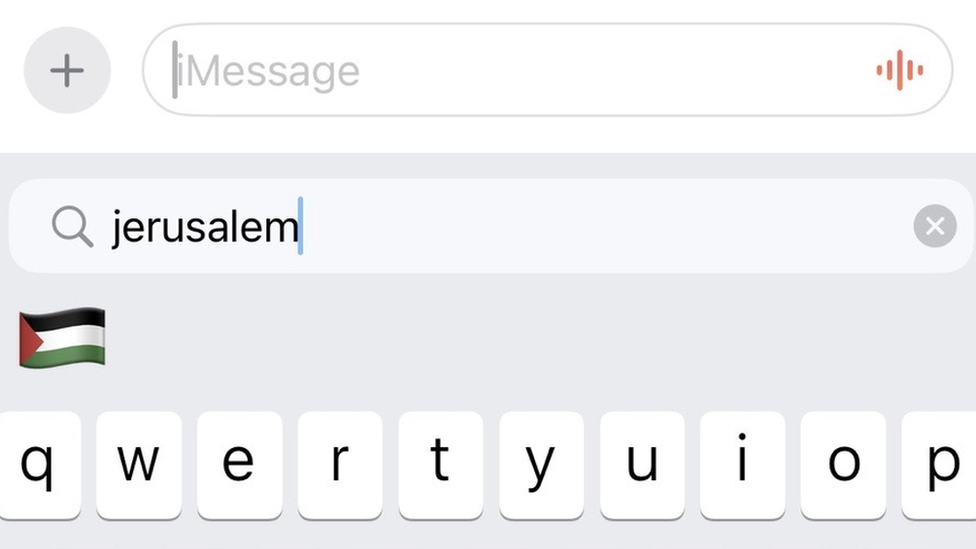Apple 'beta' update addresses Jerusalem emoji controversy

Apple has released a partial update to its iPhone software which stops the Palestinian flag emoji being suggested when users type the word "Jerusalem".
The issue had sparked controversy, with critics noting the names of other cities do not prompt flag emojis to appear.
Both Israel and the Palestinians hold competing claims to the ancient city.
Apple previously told the BBC the flag's appearance when Jerusalem was typed had been inadvertent.
The issue, according to Apple, related to unintended behaviour in a feature called predictive emoji. iPhones can suggest emojis when words are typed in messages, and other apps.
Users noticed the flag started being suggested after the company rolled out iOS 17.4.1 - the latest publicly available version of the software on which its mobile devices run.
Critics such as TV presenter Rachel Riley had demanded Apple explain why the flag appeared, particularly when other cities do not produce flag emojis when typed.
"Showing double standards with respect to Israel is a form of antisemitism," she wrote on social media.
Apple's apparent resolution is currently only in the "developer beta" version of iOS 17.5 released on Tuesday.
The Apple Developer Programme allows programmers building apps to sign up for early releases of the software - called beta versions - so they can test out apps they are building on them.
In the new update no emoji is suggested when a user types "Jerusalem", in line with what happens with other cities.
It's not clear when the update will be released more widely, either as a public beta, or as an finished update to the general public.
Deep divisions
The status of Jerusalem is one of the thorniest disputes in the conflict between Israel and the Palestinians.
Israel sees the whole of Jerusalem as its eternal, undivided capital, while Palestinians claim the eastern part as the capital of their hoped-for future state.
East Jerusalem, along with the West Bank and Gaza Strip, were captured by Israel from Jordan and Egypt in a war in 1967.
They have since been viewed internationally as occupied Palestinian territory.
There have been increased tensions in the Middle East since the 7 October Hamas attacks on Israel, in which about 1,200 people, mostly civilians, were killed and more than 250 others were taken hostage.
The subsequent Israeli military operation in Gaza has killed 33,729 people, mostly civilians, according to the Hamas-run health ministry.
